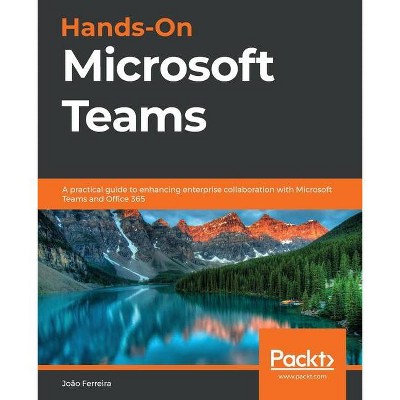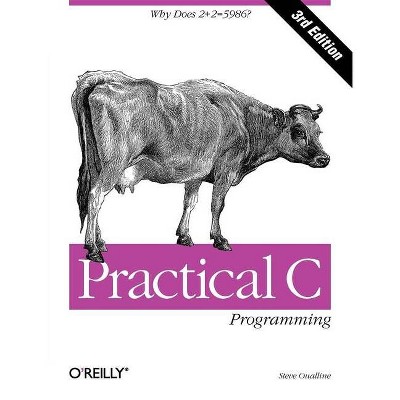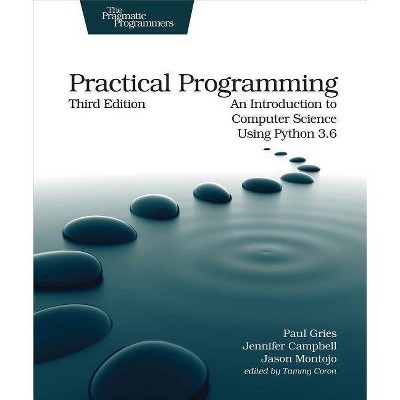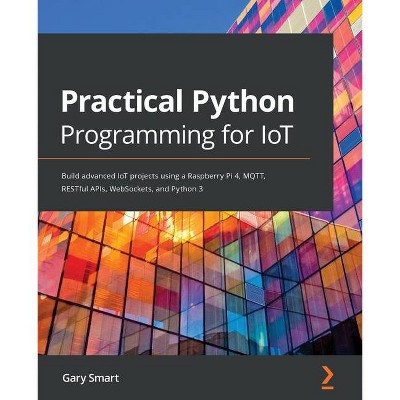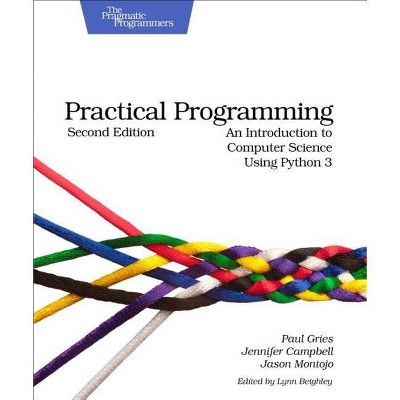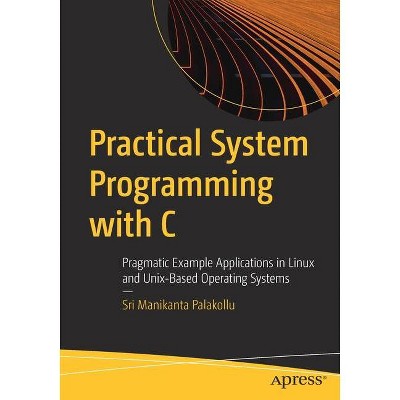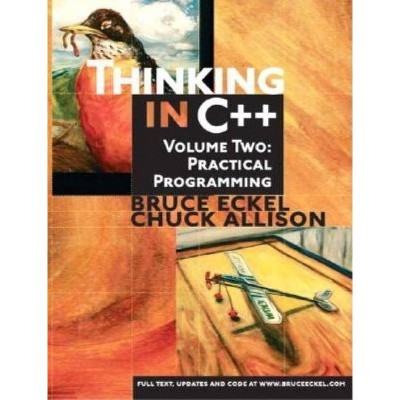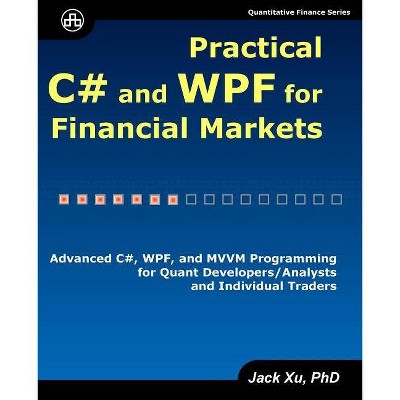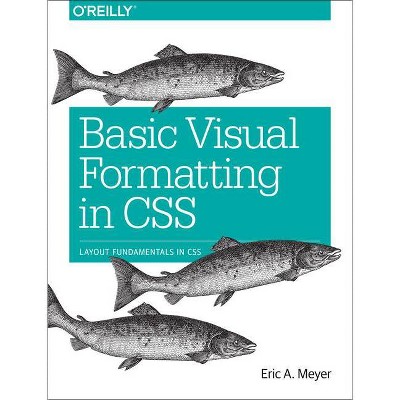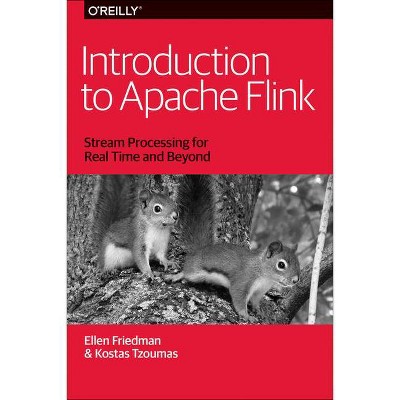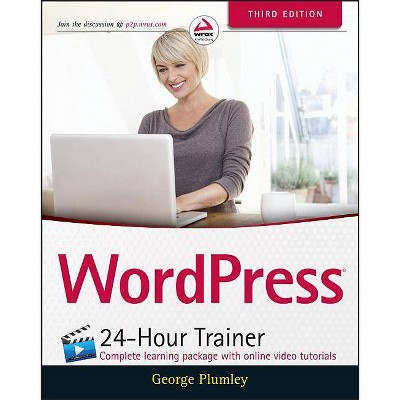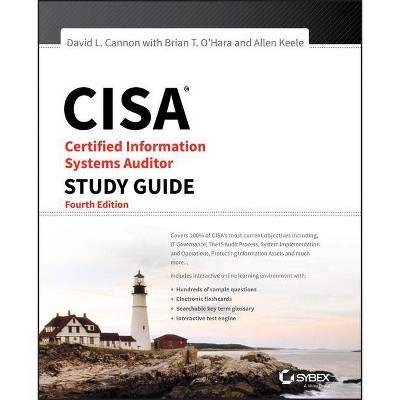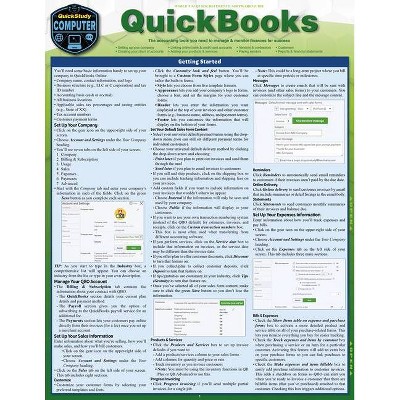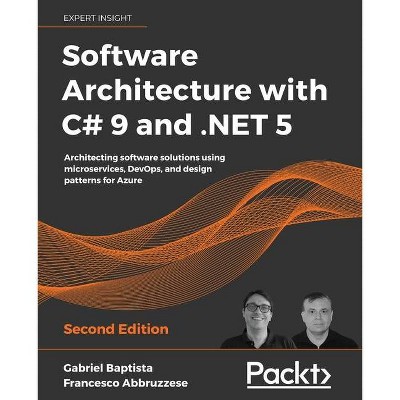Practical C++20 Financial Programming - 2nd Edition by Carlos Oliveira (Paperback)
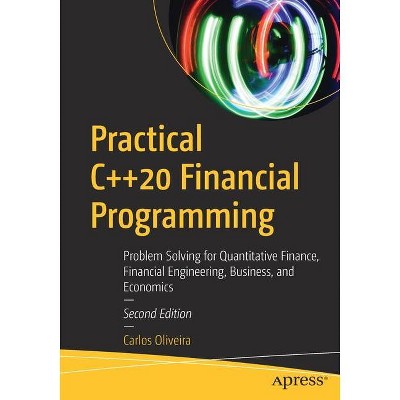
Similar Products
Products of same category from the store
AllProduct info
<p/><br></br><p><b> About the Book </b></p></br></br>Apply C++ to programming problems in the financial industry using this hands-on book, updated for C++20. It explains those aspects of the language that are more frequently used in writing financial software, including the Standard Template Library (STL), templates, and various numerical libraries. Practical C++20 Financial Programming also describes many of the important problems in financial engineering that are part of the day-to-day work of financial programmers in large investment banks and hedge funds. The author has extensive experience in the New York City financial industry that is now distilled into this handy guide. Focus is on providing working solutions for common programming problems. Examples are plentiful and provide value in the form of ready-to-use solutions that you can immediately apply in your day-to-day work. You'll see examples of matrix manipulations, curve fitting, histogram generation, numerical integration, and differential equation analysis, and you'll learn how all these techniques can be applied to some of the most common areas of financial software development. These areas include performance price forecasting, optimizing investment portfolios, and more. The book style is quick and to-the-point, delivering a refreshing view of what one needs to master in order to thrive as a C++ programmer in the financial industry. --<p/><br></br><p><b> Book Synopsis </b></p></br></br><p>Apply C++ to programming problems in the financial industry using this hands-on book, updated for C++20. It explains those aspects of the language that are more frequently used in writing financial software, including the Standard Template Library (STL), templates, and various numerical libraries. <i>Practical C++20 Financial Programming</i> also describes many of the important problems in financial engineering that are part of the day-to-day work of financial programmers in large investment banks and hedge funds. The author has extensive experience in the New York City financial industry that is now distilled into this handy guide. </p> <p>Focus is on providing working solutions for common programming problems. Examples are plentiful and provide value in the form of ready-to-use solutions that you can immediately apply in your day-to-day work. You'll see examples of matrix manipulations, curve fitting, histogram generation, numerical integration, and differential equation analysis, and you'll learn how all these techniques can be applied to some of the most common areas of financial software development. </p> These areas include performance price forecasting, optimizing investment portfolios, and more. The book style is quick and to-the-point, delivering a refreshing view of what one needs to master in order to thrive as a C++ programmer in the financial industry. <p></p> <p><b>What You Will Learn</b></p> <ul> <li>Cover aspects of C++ especially relevant to financial programming</li> Write working solutions to commonly encountered problems in finance <li>Design efficient, numerical classes for use in finance, as well as to use those classes provided by Boost and other libraries</li> </ul> <p><b>Who This Book Is For</b> </p> <p>Those who are new to programming for financial applications using C++, but should have some previous experience with C++.</p><p></p><p/><br></br><p><b> From the Back Cover </b></p></br></br><p>Apply C++ to programming problems in the financial industry using this hands-on book, updated for C++20. It explains those aspects of the language that are more frequently used in writing financial software, including the Standard Template Library (STL), templates, and various numerical libraries. <i>Practical C++20 Financial Programming</i> also describes many of the important problems in financial engineering that are part of the day-to-day work of financial programmers in large investment banks and hedge funds. The author has extensive experience in the New York City financial industry that is now distilled into this handy guide. </p><p>Focus is on providing working solutions for common programming problems. Examples are plentiful and provide value in the form of ready-to-use solutions that you can immediately apply in your day-to-day work. You'll see examples of matrix manipulations, curve fitting, histogram generation, numerical integration, and differential equation analysis, and you'll learn how all these techniques can be applied to some of the most common areas of financial software development. </p><p>These areas include performance price forecasting, optimizing investment portfolios, and more. The book style is quick and to-the-point, delivering a refreshing view of what one needs to master in order to thrive as a C++ programmer in the financial industry. </p><p>You will: <b></b></p><ul><li>Cover aspects of C++ especially relevant to financial programming</li><li>Write working solutions to commonly encountered problems in finance</li><li>Design efficient, numerical classes for use in finance, as well as to use those classes provided by Boost and other libraries</li></ul><p/><br></br><p><b> About the Author </b></p></br></br><b>Carlos Oliveira</b> works in the area of quantitative finance, with more than ten years of experience in creating scientific and financial models in C++. During his career, Carlos has developed several large-scale applications for financial companies such as Bloomberg L.P. and F-Squared Investments. Carlos Oliveira obtained a PhD in operations research and systems engineering from the University of Florida, an MSc in computer science from UFC (Brazil), and a BSc in computer science from UECE (Brazil). He has also performed academic research in the field of combinatorial optimization, with applications in diverse areas such as finance, telecommunications, computational biology, and logistics. Carlos has written more than 30 academic papers on optimization, and authored three books, including <i>Options and Derivatives Programming in C++20</i> (Apress, 2020).<br>
Price History
Price Archive shows prices from various stores, lets you see history and find the cheapest. There is no actual sale on the website. For all support, inquiry and suggestion messagescommunication@pricearchive.us

